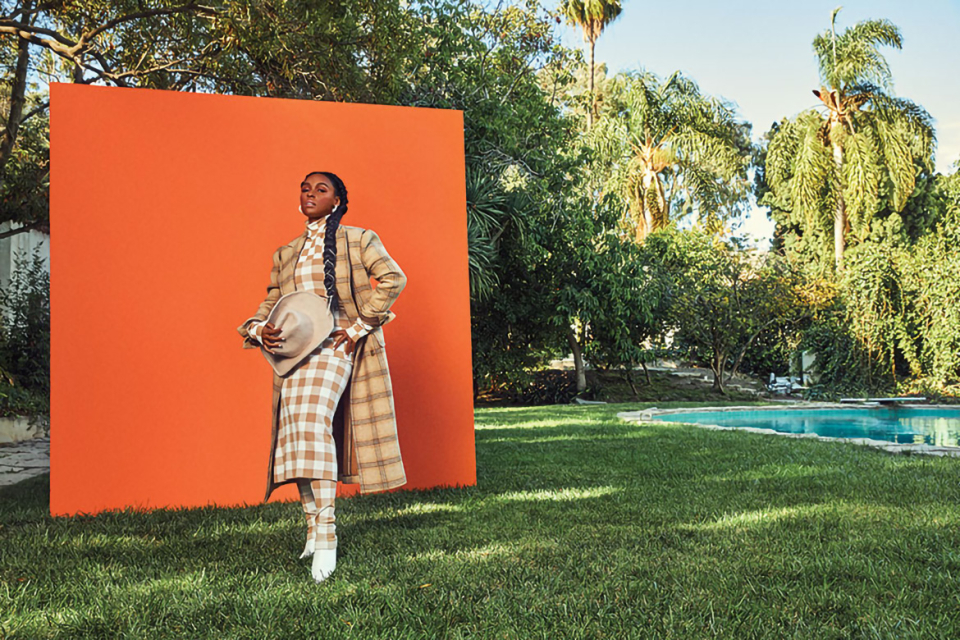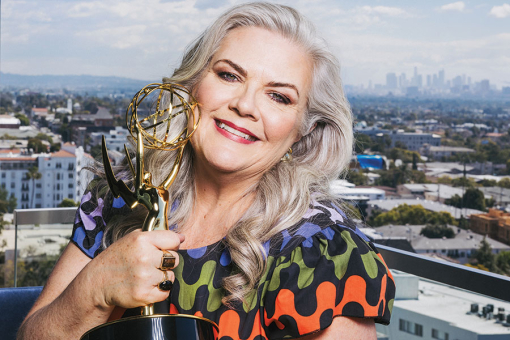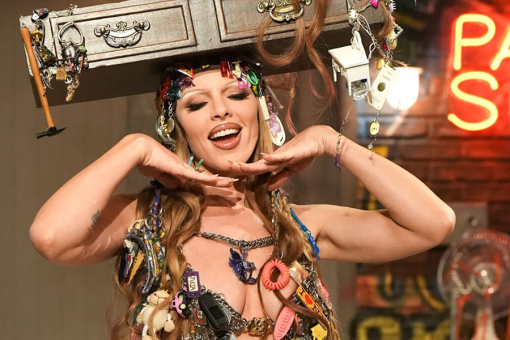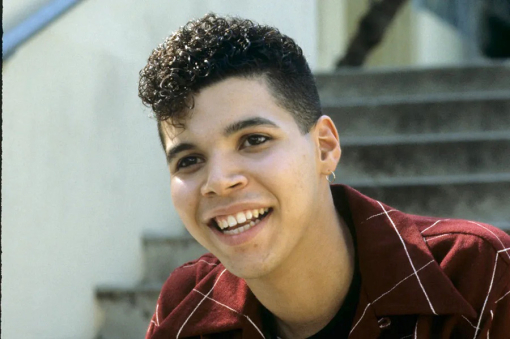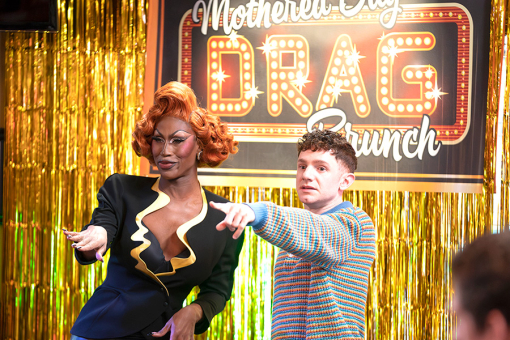Janelle Monáe appears on the screen, long braids snaking from beneath a black-and-white tweed fiddler cap by Ukrainian hatter-to-the-stars Ruslan Baginskiy.
On a wall behind her is a large undulating sculpture made of dozens of tiny wood squares. No, this is not a music video; it's a Skype interview, because electronic communication is our new normal in the Covid-19 dystopia.
At some point during this conversation about her role in the second season of Amazon Prime's Homecoming — which was fortuitously in the can by the time Hollywood shut down — Monáe rises from the sofa to show off the rest of her outfit.
She's wearing Wildfang coveralls in crisp white — the color of doctors' smocks, suffragettes and purity.
In fact, she's worn white every day since March 5, when her self-imposed quarantine began after returning to Los Angeles from Paris Fashion Week.
"Let me stay clean," she says, tugging at the logo on her right breast pocket. "I'm washing my hands profusely, Lysol-ing everything down, taking all my vitamins and trying to remain healthy. Trying to maintain a positive outlook and do what the CDC says."
Monáe also spends a lot of time calling family elders — including her mother in Atlanta and aunts in Kansas, where she grew up — and imploring them to "sit their asses down.
"Don't go to church and get this virus and die," she tells them. "It's not worth it."
She missed the funeral of her 98-year-old great-aunt, Juanita Barnett, who died of natural causes on March 12. The lack of contact has been rough. "I did sink into a dark space," she says. "And now a lot has been put into perspective on time — how we spend our time and who we spend our time with."
To maintain her sanity, she's stitched together a routine that includes writing poetry, DJ-ing in her home studio and taking a daily virtual cycling class ("I've been doing a lot of stress eating," she says).
The work of her Atlanta-based Wondaland Arts Society — an independent record label, branding consultancy and production studio (with a first-look deal at Universal) — continues remotely.
What's more, she's sharing her Hollywood Hills home with three friends, whom she prefers not to name. "We made a pact, we have rules," she says. "We don't allow people to come in."
They call themselves The Quaranteenagers, and they're playing a lot of Rummikub and making music, though it's unclear if they'll release anything they create while sheltering in place. "We have a lot of inspiration these days," she says. "We have a lot of things we can talk about."
Monáe — a genre-defying musical artist, activist, actress, fashion muse and mogul — was born to talk about things.
Things like the pain of being misunderstood, the frustration of finding her way in a recording industry that often prizes marketability over authenticity, and the particular vantage point of a black queer woman in America right now.
In the past several years, she's been on a creative tear. Back-to-back breakout roles in 2016's Moonlight and Hidden Figures introduced her to a broad new audience.
In May 2018, Dirty Computer — her third full-length album, following two concept albums on which she performed as her futuristic android alter-ego Cindi Mayweather — debuted at number one on Billboard's Top R&B Albums chart.
Her most personal work to date, Dirty Computer and an accompanying 46-minute "emotion picture" included the internet- breaking video for "Pynk." A celebration of sapphic love and female empowerment, it firmly established Monáe as a queer icon.
Homecoming, which dropped all seven episodes May 22, represents both her first series lead and an opportunity to showcase a deeper level of acting technique. At the center of this season's story is a relationship between two women, one of them played by Monáe and the other by Hong Chau (Watchmen).
"Figuring out how to get into that stillness, the persuasion, uncovering the truth," she says, "that was extremely appealing to me."
Monáe has limited formal training as an actor; she earned a scholarship to the American Musical and Dramatic Academy (AMDA) in New York City but left early. Even so, she is a preternaturally gifted performer with a chameleonic quality.
Homecoming cocreator– executive producers Eli Horowitz and Micah Bloomberg wrote the part — a woman who wakes up in a canoe on a dark lake with no idea who she is or how she got there — for Monáe.
"At the heart of this story are multiple versions of this person," says Bloomberg, who, with Horowitz, is also coshowrunner. "Janelle is so good at transforming herself in her other work; she can wholly embody different personas. We designed the role with that in mind."
Monáe uses a version of method acting, walling herself off from friends and family during production. "I don't want to break character," she explains. "I want that spirit to show up always, to be ready to tap into it always. So that's a bit draining, but it's also fulfilling."
Kyle Patrick Alvarez, who directed every episode of the new season, says that in spite of her approach, Monáe is pragmatic and accessible on set, eager for direction and unself-conscious about watching her own performance on playback.
"A lot of actors work through accessing very vulnerable things, so they're working in this very sensitive place," he says. "Janelle comes from the world of performance, so she has an appreciation for all of the other elements of the work. It took a lot of the pressure off in terms of how to communicate, especially on a show this technical."
She uses the same approach in her musical performances.
"When I'm in rehearsals for the Oscars or the Grammys, I have to look at those rehearsals and understand if I'm hitting my mark," Monáe says.
"I'm a visual learner, so if [the director] tells me, 'Be more still, be more expressive, say this a little softer, don't turn your head during that moment because that's confusing,' if I can look at the take, I can be objective."
The first two episodes of Homecoming revolve around her character's efforts to discover her identity. Episode two ends with a cliffhanger — and a head-spinning reveal that leads to a significant character twist — for the audience and for Monáe.
"It's not an easy thing to carry a show, and in the first two episodes to barely speak and then do a huge character turn," Alvarez says.
This second season of the show — produced by Amazon Studios and UCP — varies significantly in tone and style from the first, which starred Julia Roberts as a therapist at a Florida treatment facility for PTSD-afflicted veterans.
And while season one could be seen as a metaphor for our modern politics, the new season — with its overarching themes of misguided ambition and the global calamity that can result from individuals' bad decisions — is eerily prescient in our pandemic world.
"I do think we're going to have to figure out how to help each other," Monáe says. "It's going to be up to us to pick each other up. We can't depend on the government." ...
For the rest of the story and more photos, pick up a copy of emmy magazine HERE
This article originally appeared in emmy magazine, Issue No. 6, 2020.
More articles celebrating Pride Month.

